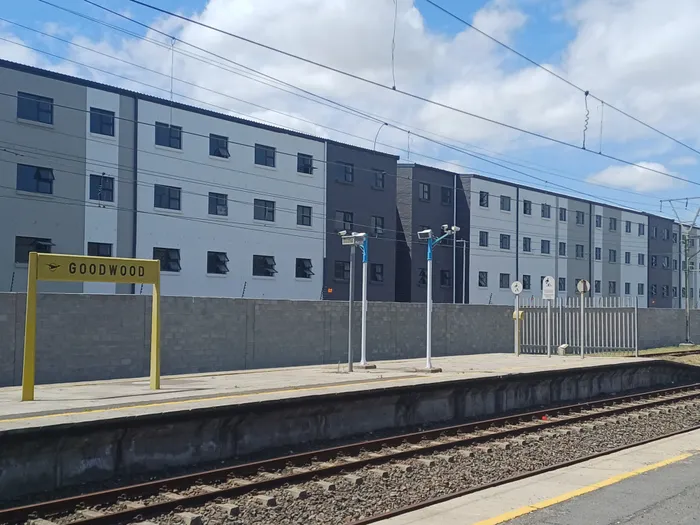
The Goodwood Station Social Housing Development project has come under scrutiny.
Image: DCI website
Calls have been made for an urgent and independent investigation into the management of social housing facilities in Cape Town, following a wave of complaints from tenants about unaffordable utility bills, mistreatment by security and what they describe as inhumane living conditions.
GOOD Party Councillor Axolile Notywala said complaints have been pouring in over the past month, particularly from residents at the DCI Social Housing facility in Goodwood and Conradie Park in Thornton.
Issues raised include excessive utility charges, poor service delivery, and restrictive rules on visitors.
“I raised these issues during a City Human Settlements Portfolio Committee meeting on June 5,” Notywala said. “Despite the seriousness of the concerns, they were largely dismissed.”
According to Notywala, he was told the City was “already investigating” electricity tariffs and that other concerns were “not the City’s responsibility".
On June 22, Notywala attempted an oversight visit to the DCI Goodwood facility with fellow councillors but was barred from entering.
The incident, which he documented in a video, drew comments from tenants echoing similar complaints across other social housing developments.
Messages sent to him privately paint a disturbing picture.
One message read: “This Place in Goodwood is worse and evil. People are treated like dogs and prisoners… Visitors (must) pay money or they will be thrown out. The water is dirty forever. Please stand with us (sic).”
On July 4, the People’s Legal Centre (PLC), acting on behalf of tenants, submitted a formal request for urgent intervention to the City, the Western Cape Department of Infrastructure, and the Social Housing Regulatory Authority (SHRA).
PLC Executive Director Andries Vermeulen said: “We were instructed by the first tenant on June 9 to deal with an illegal lockout (which appears to be a regular occurrence at DCI). Since then, we have been instructed by three further tenants and by Housing Assembly.”
According to the PLC, under Section 12(1) of the Social Housing Act, the SHRA is legally obligated to intervene if there is “maladministration”, which includes governance or financial failure. The PLC letter asked SHRA to make such a determination by July 11.
SHRA responded on July 7 proposing a meeting with PLC and DCI on July 18. The PLC confirmed they are still taking instructions but will likely attend.
Vermeulen added: “The intervention of the City was also requested, particularly in respect of refuse removal, electricity and water services, but no response has been received. We understand that the City has been aware of many of the issues since at least November 2024.”
In response, the City said it is “looking into some of the matters raised” but emphasised that day-to-day operations fall under social housing institutions.
“The maintenance, management, tenancy, rental payments and all housing complex matters are within the mandate of the relevant social housing institutions,” the City stated.
Western Cape Department of Infrastructure’s spokesperson Melchior Botes said: “The province appreciates the concerns raised and has already engaged with SHRA. The Department is committed to collaborate with all relevant stakeholders. The issues raised with regards the Goodwood Station Project, managed by DCI, will be addressed accordingly.”
DCI CEO Fezile Calana defended his organisation’s practices, saying the housing provider has been transparent with tenants.
“We explain to people before they pay the deposit the rules of the place,” he said.
“Our conditions are that for a bachelor, only two people can stay; one-bedroom, two people; and two-bedroom, four people. These rules relate to maintenance.”
On visitation, Calana said: “People are only allowed 10 sleepover visitors per month and visiting hours are from 9am to 10pm. If people don’t leave, the security guards will tell them to leave.”
He denied claims that visitors are charged.
Calana acknowledged some tenants were struggling financially but warned that rental boycotts could lead to removal from the housing system.
“We are very strict on how we deal with our tenants and they can come and make arrangements instead of (a) rent boycott.”
Cape Times